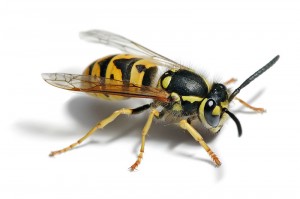Wasps in January
In Pests, Pests in January, Wasps
Wasps in January
At PEST UK we are still getting calls from customers with pest control problems concerning wasps and wasp nests. Usually this involves people getting Queen wasps coming into rooms from the loft or other cavities where old nests were and/or Queen wasps have chosen these sites for hibernation. The unusually warm weather coupled with artificial light and heat can make Queen wasps think it is Spring and time to come out of hibernation.

What can be done about Wasps in January?
One solution is to apply a residual insecticide and /or an insecticide applied through a fogging machine. This kills wasps but rarely will this type of treatment eliminate the wasp problem immediately as the metabolism of hibernating wasps is very slow which means once they come into contact with insecticides it may take some time to die. The other reason is that hibernating wasps are spread over a wide area and the insecticides applied may not reach all areas of a loft or cavity. Having a wasp treatment will also reduce your chances of getting a wasp nest or wasp nests the following year. Queen wasps come out of hibernation March-April and start a nest into which lay lay eggs. The eggs hatch into grubs which are fed by the Queen wasp and then they pupate and hatch into worker wasps. The population increases from just the Queen wasp in April to several thousand by mid July.
Prices
Prices for treating wasps in January start at £65.00 + VAT, depending on the size of the house and the area that needs treating.
To book a pest control treatment or free advice then please call us at PEST UK: 0330 100 2811 (local rate) or 0800 026 0308 (free from land lines & some mobiles).
PEST UK cover a wide area of England including Berkshire, Middlesex, Surrey, Oxfordshire, Hampshire, Buckinghamshire & West London.
Wasps – Advice from the BPCA

